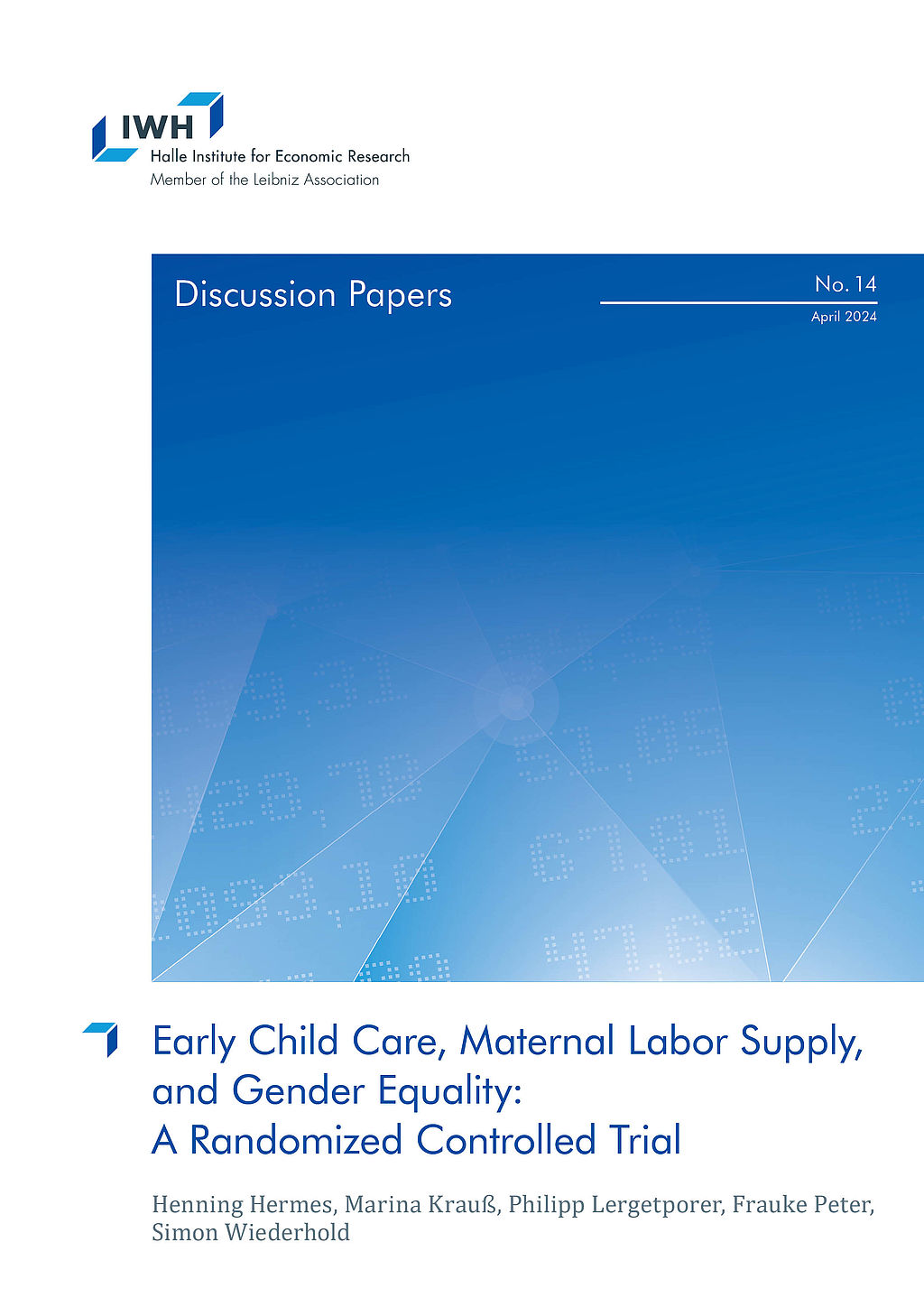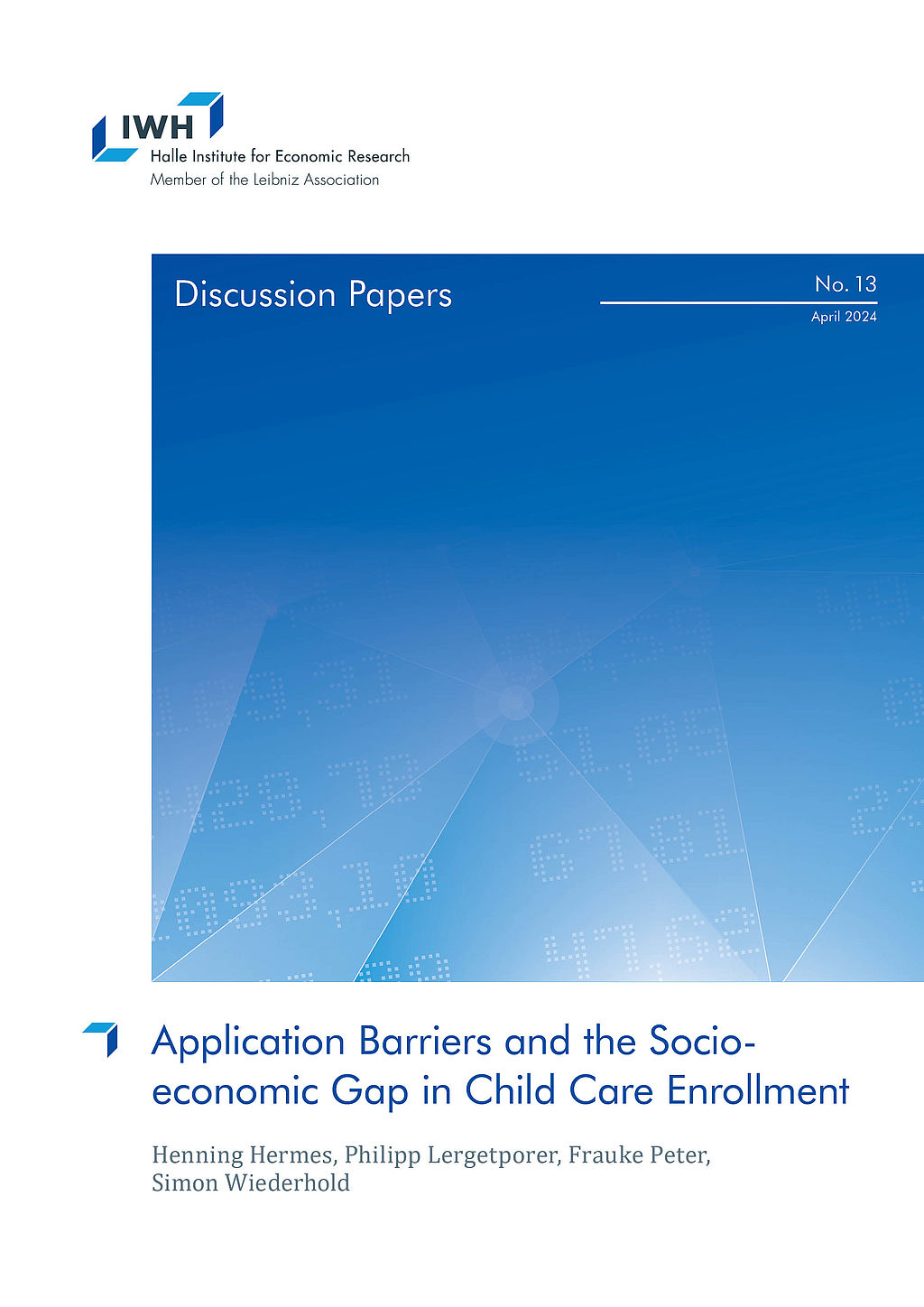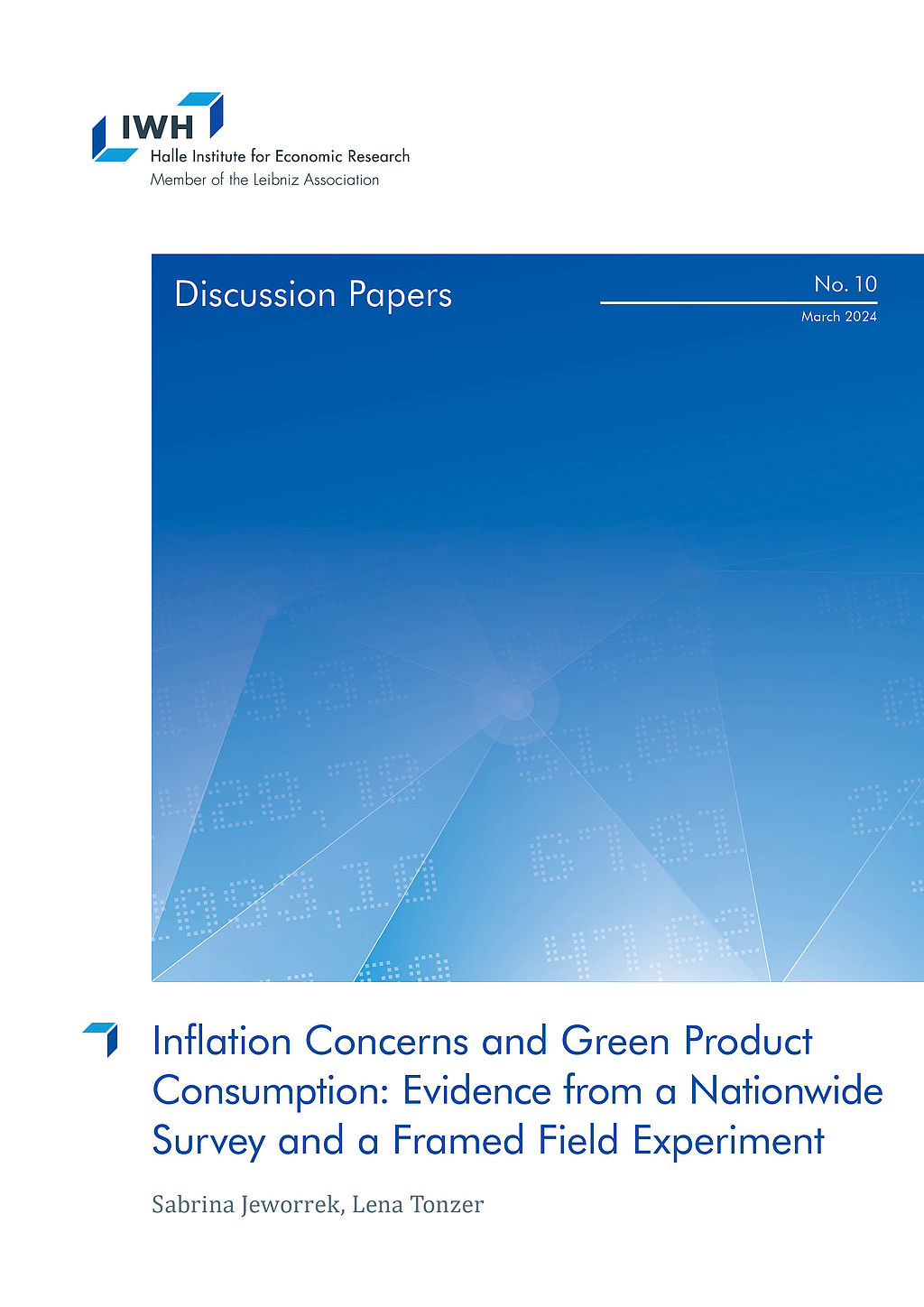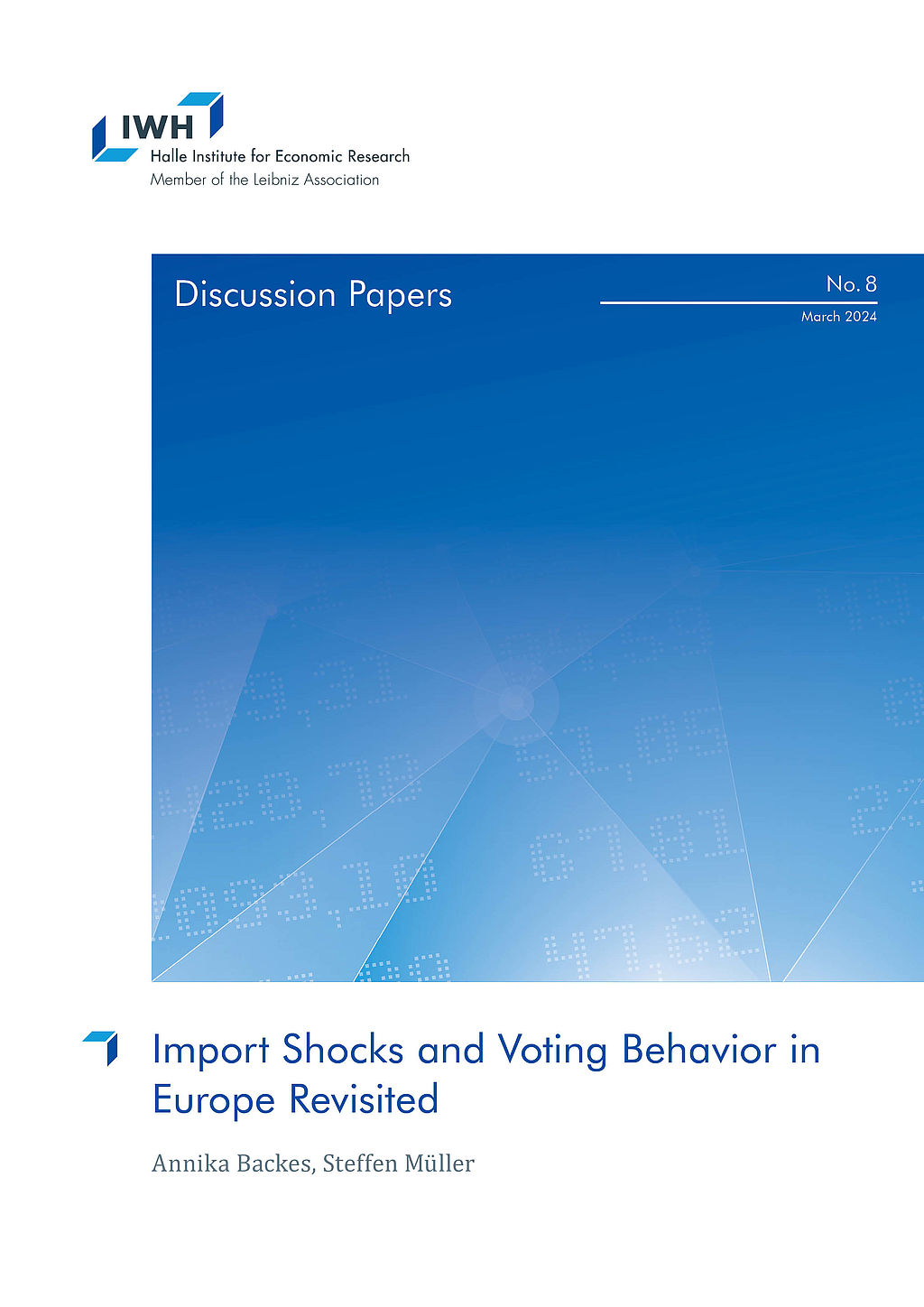The maths behind gut decisions
First carefully weigh up the costs and benefits and then make a rational decision. This may be the way we want it to be. But in reality, invisible emotions, experiences, prejudices and even altruisms also influence our decisions.
Dossier
In a nutshell
Human decision-making behaviour is far more complex than the traditional economic model of homo economicus, the benefit maximiser, suggests. Who would have thought, for example, that people who are able to determine their own salary do not in fact pay themselves the maximum but a rather moderate amount? That television affects our choice of junior staff or our income and consumption requirements? Or that people with an economic background actually behave differently when making financial decisions? Behavioural economists at the Halle Institute for Economic Research (IWH) are investigating what such irrational factors mean for a society's economic processes, using the (social) psychology toolbox and devising experiments and studies to identify and close the gaps in the homo economicus model.
Our expert for this issue

Department Head
If you have any further questions please contact me.
+49 345 7753-708 Request per E-MailAll experts, press releases, publications and events on "Behaviour"
The world of work is one area where such deviations from the benefit-maximising ideal image are the rule rather than the exception. Companies need productive staff to be successful. In order to maintain or even improve this productivity, however, it is not enough for a firm to focus solely on the remuneration of its workforce according to the motto: the more, the better. Other factors, such as meaningful work or the feeling of being treated fairly, also affect workforce productivity levels.
For example, if employees learn at a later, that a task they have already performed was meaningless, they will make less of an effort with future work. This means that meaningless work not only evokes negative emotions at the time, such as disappointment and replaceability, but also influences future motivation, as IWH behavioural economist, Sabrina Jeworrek and her co-authors discovered with the help of a large-scale experiment. This discovery should not be confused with another, however: employees also definitely want information about their companies' setbacks. If, for example, a campaign has failed in the past, it makes sense to inform the workforce of this and not to conceal this fact. As employees will not be demotivated by this setback, as you might expect – on the contrary. They will try harder next time if they are able to regard the task as a meaningful challenge.
In another study, Jeworrek discovered that employees are less productive if they believe that their employer is treating their colleagues unfairly – even if they themselves are unaffected by this. For this experiment, 195 test subjects were hired for two assignments in a call centre. A section of the workforce was arbitrarily dismissed on grounds of cost savings. "We wanted the situation to be as anti-social and unfair as possible," says Jeworrek. And not only did productivity fall, the test subjects also took longer breaks and left work earlier.
The self-employed do not have the problem of colleagues being unfairly treated. Nevertheless,their behaviour is also affected by hidden factors. Whether they are gripped by entrepreneurial spirit also depends on which TV programmes they watched in their youth, for example. Or whether they have sufficient financial market knowledge. You see,econometric findings suggest that greater financial literacy leads to increased self-employment. So, if politicians want more entrepreneurial activity in Germany, the prevalence of positive role models, the inclusion of a basic grasp of economics in the curriculum and financial information would be a major starting point. As soon as a person becomes self-employed, their character also changes: if a person is self-employed they are more willing to take risks – and also more likely to remain self-employed.
And even the unemployed are influenced by context: IWH economist Steffen Müller discovered that parental unemployment affects children, for example. What is particularly interesting is that boys and girls react differently to parental unemployment. If their father was unemployed, both sons and daughters are more likely to be unemployed in future, but daughters experience a counter-reaction that sons do not: they invest more in their education.
Regardless of whether a person is employed, self-employed or unemployed, their subjective wellbeing heavily depends on how they perceive their position within their social group. This can also affect basic personal attitudes, for example, towards foreigners: if a person compares their income with that of their friends and feels financially inferior, this will have a negative impact on their sympathy towards foreigners – even if this person is actually a higher-earner.
People do not always act and make decisions rationally; they are fallible. Subconscious factors determine the direction of our decisions, and many of these factors are beyond our control. However, being aware of the mechanisms behind this can help us to understand people and their role in the economy, identifying and promoting their potential.
Publications on "Behaviour"

Early Child Care, Maternal Labor Supply, and Gender Equality: A Randomized Controlled Trial?
in: IWH Discussion Papers, No. 14, 2024
Abstract
We provide experimental evidence that enabling access to universal early child care increases maternal labor supply and promotes gender equality among families with lower socioeconomic status (SES). Our intervention offers information and customized help with child care applications, leading to a boost in child care enrollment among lower-SES families. 18 months after the intervention, we find substantial increases in maternal full-time employment (+160%), maternal earnings (+22%), and household income (+10%). Intriguingly, the positive employment effects are not only driven by extended hours at child care centers, but also by an increase in care hours by fathers. Gender equality also benefits more broadly from better access to child care: The treatment improves a gender equality index that combines information on intra-household division of working hours, care hours, and earnings by 40% of a standard deviation, with significant increases in each dimension. For higher-SES families, we consistently observe negligible, insignificant treatment effects.

Application Barriers and the Socioeconomic Gap in Child Care Enrollment
in: IWH Discussion Papers, No. 13, 2024
Abstract
Why are children with lower socioeconomic status (SES) substantially less likely to be enrolled in child care? We study whether barriers in the application process work against lower-SES children — the group known to benefit strongest from child care enrollment. In an RCT in Germany with highly subsidized child care (N = 607), we offer treated families information and personal assistance for applications. We find substantial, equity-enhancing effects of the treatment, closing half of the large SES gap in child care enrollment. Increased enrollment for lower-SES families is likely driven by altered application knowledge and behavior. We discuss scalability of our intervention and derive policy implications for the design of universal child care programs.

Inflation Concerns and Green Product Consumption: Evidence from a Nationwide Survey and a Framed Field Experiment
in: IWH Discussion Papers, No. 10, 2024
Abstract
Promoting green product consumption is one important element in building a sustainable society. Yet green products are usually more costly. In times of high inflation, not only budget constraints but also the fear that prices will continue to rise might dampen green product consumption and, hence, limit the effectiveness of exerted efforts to promote sustainable behaviors. To test this suggestion, we conducted a Germany-wide survey with almost 1,200 respondents, followed by a framed field experiment (N=500) to confirm causality. In the survey, respondents’ stated “green” purchasing behavior is, as to be expected, positively correlated with concerns about climate change. It is also negatively correlated with concerns about future inflation and energy costs, but after controlling for observable characteristics such as income and educational level only the correlation with concerns about future prices remains significant. This result is driven by individuals with below-median environmental attitude. In the framed field experiment, we use the priming method to manipulate the saliency of inflation concerns. Whereas sizably relaxing the budget constraint (i.e., by 50 percent) has no impact on the share of organic products in participants’ baskets, the priming significantly decreases the share of organic products for individuals with below-median environmental attitude, similar to the survey data.

Import Shocks and Voting Behavior in Europe Revisited
in: IWH Discussion Papers, No. 8, 2024
Abstract
We provide first evidence for the long-run causal impact that Chinese imports to European regions had on voting outcomes and revisit earlier estimates of the short-run impact for a methodological reason. The fringes of the political spectrum gained ground many years after the China shock plateaued and, unlike an earlier study by Colantone and Stanig (2018b), we do not find any robust evidence for a short-run effect on far-right votes. Instead, far-left and populist parties gained in the short run. We identify persistent long-run effects of import shocks on voting. These effects are biased towards populism and, to a lesser extent, to the far-right.

Der Börsengang und die interne Organisation des Unternehmens
in: Wirtschaft im Wandel, No. 1, 2024
Abstract
In diesem Beitrag wird untersucht, wie Unternehmen ihre Organisation anpassen, wenn sie erstmalig an die Börse gehen (<i>initial public offering, IPO</i>). Im Zuge des Börsengangs wandeln sich Unternehmen in eine hierarchischere Organisation um und verstärken die Aufsicht durch das Management. Organisatorische Funktionen in den Bereichen Rechnungswesen, Finanzen, Informationstechnologie und Personalwesen gewinnen an Bedeutung. Sie tauschen einen großen Teil ihrer Belegschaft und fast ihr gesamtes Management aus, um ihr Humankapital an die neue Organisation anzupassen. Die neue Organisation erleichtert interne Versetzungen und Beförderungen. Insgesamt ist das Unternehmen durch den Börsengang einem Wandel unterworfen, der die Abhängigkeit des Unternehmens von einzelnen Beschäftigten verringert und den Produktionsprozess effizient organisiert.



